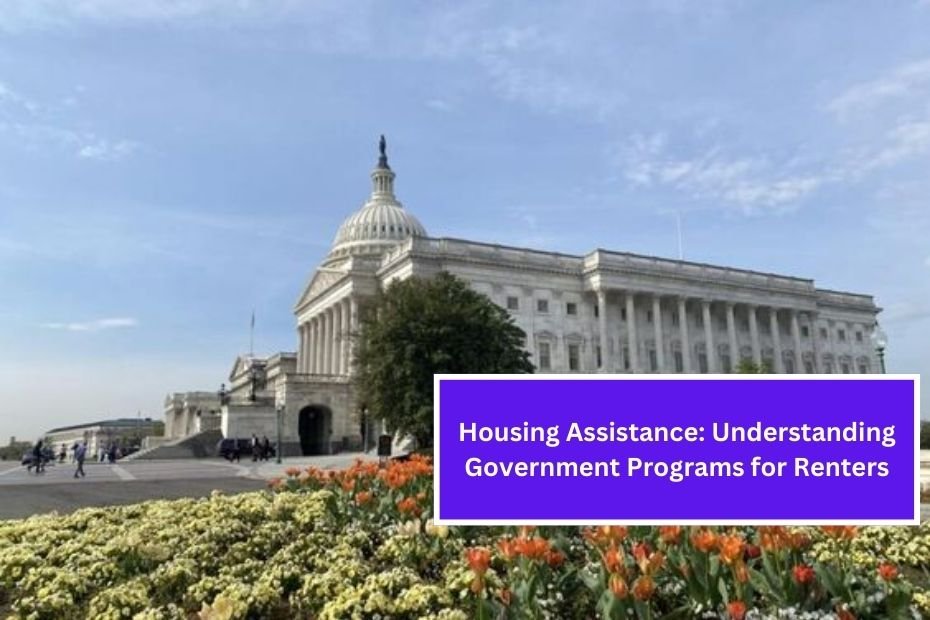Finding affordable housing can be a challenge for many people. In today’s world, where rent prices are high, government assistance programs can be a lifeline for renters in need. This article will explain what housing assistance is, the different government programs available, eligibility requirements, and how to apply for these programs.
What is Housing Assistance?
Housing assistance refers to various programs and services provided by the government to help individuals and families afford housing. These programs aim to reduce the financial burden of rent and ensure that everyone has a safe and stable place to live. Assistance can come in many forms, including direct financial aid, vouchers to help pay rent, and support for finding suitable housing.
Types of Housing Assistance Programs
There are several government programs designed to assist renters. Here are some of the most common ones:
1. Housing Choice Voucher Program (Section 8)
The Housing Choice Voucher Program, commonly known as Section 8, helps low-income families pay for housing. Participants receive vouchers that can be used to subsidize their rent in privately owned homes or apartments. Here’s how it works:
- Eligibility: To qualify, families must meet income limits set by the government. Generally, your income must be below 50% of the median income in your area.
- Application Process: Interested individuals must apply through their local Public Housing Agency (PHA). There may be waiting lists due to high demand.
- How it Works: Once approved, participants can find housing in the private market. The voucher covers the difference between 30% of the household’s income and the rent amount, up to a certain limit.
2. Public Housing
Public housing is a program where the government owns and manages rental properties. These properties are available to low-income families, the elderly, and individuals with disabilities.
- Eligibility: Like Section 8, income limits apply. Applicants must also meet certain citizenship requirements.
- Application Process: You can apply through your local PHA. After an application is submitted, the agency will conduct interviews and background checks.
- Living Arrangements: Residents pay a portion of their income as rent, and the government covers the rest.
3. Rapid Re-Housing
Rapid Re-Housing is designed to help individuals and families experiencing homelessness. The goal is to quickly move them into permanent housing.
- Eligibility: This program often targets homeless individuals or families who are ready to live independently but need short-term assistance.
- Support Offered: Participants receive financial assistance for rent and utilities, along with services to help them find housing.
- Duration: Assistance is usually provided for a limited time, typically ranging from a few months to a year.
4. Emergency Rental Assistance
Emergency Rental Assistance programs help renters who are facing a crisis, such as job loss or medical emergencies, that make it difficult to pay rent.
- Eligibility: These programs often have specific income requirements and may prioritize those who are at risk of eviction.
- How it Works: Eligible applicants can receive direct financial assistance to cover overdue rent or utilities, helping to prevent eviction.
- Application Process: Interested renters can apply through local agencies or organizations that manage these funds.
5. State and Local Programs
In addition to federal programs, many states and local governments offer their own housing assistance programs. These can include:
- State-Funded Programs: Some states have funds specifically allocated for housing assistance, often with unique eligibility criteria and application processes.
- Non-Profit Organizations: Many non-profits also provide assistance, including funds for first month’s rent, moving costs, or deposits for new apartments.
Eligibility Requirements
Eligibility for housing assistance varies by program but generally includes:
- Income Limits: Most programs have income thresholds based on the area’s median income. Your income must fall below a certain percentage to qualify.
- Family Composition: Some programs prioritize families with children, the elderly, or individuals with disabilities.
- Citizenship: Most programs require applicants to be U.S. citizens or have eligible immigration status.
How to Apply for Housing Assistance
Applying for housing assistance can seem overwhelming, but it’s a straightforward process if you know what to do. Here are the steps:
1. Research Available Programs
Start by researching the housing assistance programs available in your area. Visit websites for your local Public Housing Agency, state government, or non-profit organizations that provide housing assistance.
2. Check Eligibility
Once you find a program that interests you, check the eligibility requirements. Make sure you meet the income limits and any other criteria.
3. Gather Necessary Documents
Before applying, gather all necessary documents. Common documents required include:
- Proof of income (pay stubs, tax returns)
- Identification (driver’s license, social security card)
- Rental history
- Any documentation related to your housing situation (eviction notices, lease agreements)
4. Complete the Application
Fill out the application form for the program. Be honest and thorough in your responses. If you’re applying for Section 8, you’ll likely need to fill out additional forms regarding your household composition and income.
5. Submit the Application
Submit your application to the appropriate agency. Some applications can be submitted online, while others may need to be mailed or delivered in person.
6. Follow Up
After submitting your application, follow up to ensure it has been received and is being processed. If you are placed on a waiting list, be sure to ask about your position and any next steps.
Tips for a Successful Application
Here are some tips to improve your chances of receiving housing assistance:
- Be Honest: Provide accurate information on your application. Any discrepancies can delay the process or lead to denial.
- Keep Records: Maintain copies of all documents submitted, along with any correspondence with the housing agency.
- Stay Informed: Regularly check the status of your application and be proactive in following up.
- Seek Help: If you’re unsure about the application process, reach out to local organizations for assistance. Many non-profits offer free help in filling out forms and understanding requirements.
Conclusion
Housing assistance programs are vital for many renters struggling to afford housing. Understanding the available options can help you find the support you need. Whether it’s through federal programs like Section 8 or local initiatives, assistance is available to help you secure a stable home. By researching your options, checking eligibility, and following the application process, you can take important steps toward affordable housing.
If you or someone you know needs help, don’t hesitate to explore these programs. Remember, having a safe and stable place to live is a right, and there are resources available to support you on that journey.

